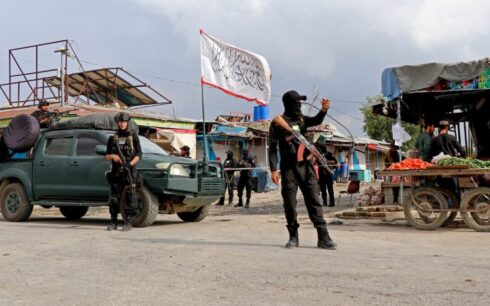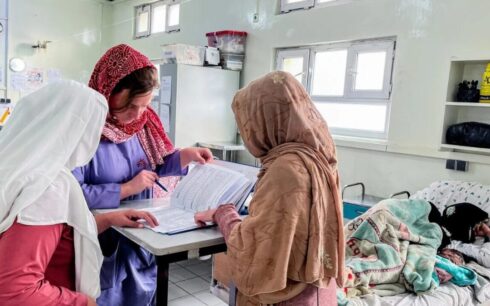KABUL — As international organizations continue to condemn the erosion of women’s rights in Afghanistan, the Taliban claimed in a statement on Tuesday that they have prevented 5,000 cases of forced marriage since returning to power in August 2021.
Hamidullah Fitrat, a deputy spokesperson for the Taliban, said these cases involved women and girls being coerced into marriage in exchange for money, against their will, or as minors paired with older men. Fitrat added that 500 forced marriages were reportedly stopped in the past six months.
The Taliban also claimed their Ministry for the Propagation of Virtue and the Prevention of Vice addressed 1,000 incidents of domestic violence against women in the last six months. These incidents reportedly included physical and psychological abuse, denial of legal rights, and behaviors rooted in what the Taliban described as “harmful traditions.”
The claims come against a backdrop of widespread criticism from the United Nations and other international organizations, which have documented significant rights violations against Afghan women since the Taliban seized power.
The Taliban’s statement further alleged that they resolved 20,000 cases involving women’s inheritance, dowries, and other legal entitlements over the past three years, with 1,000 such cases addressed in the past six months.
In a virtual address marking the International Day for the Elimination of Violence Against Women, Richard Bennett, the UN Special Rapporteur on Human Rights in Afghanistan, expressed grave concern about increasing forced marriages, child marriages, and trafficking of women and girls.
“The Taliban’s system of repression and gender-based discrimination has severe psychological impacts on women and girls, many of whom suffer from stress, anxiety, depression, and hopelessness,” Bennett said. He also highlighted a troubling rise in suicide rates among Afghan women.
Bennett warned of long-term, generational consequences, not only for women and girls but also for Afghan boys and men growing up in a system that normalizes the exclusion and suppression of women.
Field Study Highlights Drivers of Forced Marriages
A recent study conducted by Amu TV in eight provinces, including Bamiyan, Kunduz, and Faryab, documented 58 cases of forced marriage over the past two years, based on interviews with 24 witnesses.
The study found that:
37.5% of respondents attributed forced marriages to economic hardship.
37.3% cited harmful cultural practices such as exchanging girls, illiteracy, and family pressure.
20.8% identified the Taliban’s ban on girls’ education as a contributing factor.
4.4% declined to respond.
Some respondents were themselves victims or witnesses of forced marriages. The findings emphasize how economic distress and restrictive Taliban policies, including the prohibition of girls’ education, are fueling a rise in forced marriages.
Broader implications
While the Taliban’s claims of addressing forced marriages and domestic violence may indicate efforts to manage public perception, experts and rights groups contend that their broader policies—such as banning women and girls from education and work—exacerbate vulnerabilities for Afghan women.
“The gap between the Taliban’s statements and the reality on the ground is stark,” Bennett said. “For many Afghan women and girls, rights and freedoms remain severely curtailed, with little hope for immediate improvement.





